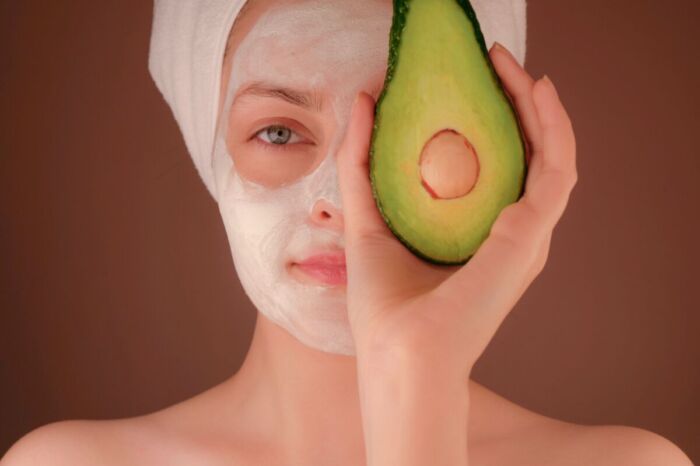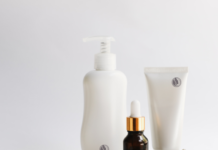
The rigors of winter are certainly the main enemy of the skin of the face. When the temperature drops, the skin’s defenses are also lowered, which progressively loses water, lipids and other nutrients. The layer of fat that normally protects the skin and keeps it compact thins, exposing it to the action of external agents such as wind and cold.
If the epidermis is no longer intact it will tend to let out water to dehydrate. This condition of suffering also affects deep into the dermis (the layer under the epidermis): the fibroblasts, producers of collagen, elastin and hyaluronic acid, which live in the presence of water, will be less productive. Even the microcirculation, a system of small capillaries, will not work optimally because the vessels are less elastic and because the blood will tend to concentrate towards the internal organs and less in the periphery. The result is particularly dry skin, less elastic and sometimes even itchy because it cracks due to the altered lipid layer.
How to clean and exfoliate your skin
To help the skin of the face, let’s start with cleansing: we opt for the use of water in combination with a soap with a pH suitable for our skin type: 5.5 – 6 for normal or dry skin, 5.0 – 5.5 for oily skin. The choice of soap must be made taking into account that vegetable soaps (Marseille type) have a tendency to turn the pH upwards in contact with water while synthetic soaps (syndet such as pharmaceutical sulfur soaps) keep the pH stable in contact with water.
A necessary clarification should be made on synthetic soaps: they are usually based on SLS or SLeS therefore what is very often found in shampoos and shower gels. A valid alternative to soap are liquid soaps with an eco-sustainable detergent base derived from coconut or sugar and enriched with vegetable oils such as Sweet Almond or Argan.
To remove make-up, the choice of product, cleansing milk or micellar water, must be made according to the degree of satisfaction, in terms of cleanliness, which makes you one or the other cosmetic. Clearly during the winter and, even more so, in the case of dry skin, cleansing milk is preferred.
To restore the correct radiance to the skin, eliminate dead cells, renew the superficial epidermal layer, free the pores of impurities, it is important to ensure a gentle exfoliation by choosing to proceed with a facial scrub instead of the classic cleansing mask or scrub.
A facial scrub should be done on a weekly basis, but in the case of particularly sensitive skin it is better to opt for a treatment every 10/15 days. The facial scrub is perfect for combination and oily skin, but it is also optimal for dry skin.
Moisturize your skin with natural creams
Now the skin is ready to fully absorb any type of cream or serum treatment, better if done in the evening because after the treatment it is not possible to proceed with make-up and it is recommended not to expose yourself to the sun’s rays.
In face creams you can see how powerful nature is. Of all green cosmetic products, face creams are the ones that have carved the deepest furrow between them and the “chemical twins”, demonstrating in terms of effectiveness how superior they are and above all without contraindications.
For deep hydration we need a rich cream from the point of view of the fat phase. This does not mean that the cream is oily, quite the opposite. All creams based on vegetable oils and butters are perfect. Shea Butter, Cocoa Butter, Beeswax (for non-vegans), Mimosa Wax, Rice Wax, Jojoba Wax, Evening Primrose Oil, Rice Bran Oil, Sweet Almond Oil are the precious allies of skin of our face.
All these substances deeply nourish the skin by direct hydration and not by rebound effect. The “chemical twin” substances: silicone and paraffinic tend to close the pores so that, by decreasing perspiration, the skin of the face appears more hydrated. The consequences of these cosmetics are the formation of blackheads and / or pimples as well as excessive dryness when we stop using them.

Also in this case, as before, a necessary clarification must be made. The “chemical twins” lend themselves exceptionally to being applied in the morning as they work as a make-up base: most foundations contain silicones, paraffin and other similar substances. On the other hand, a “natural” cream applied in the morning can be an annoying base because it tends to make makeup “go down”.
To remedy the problem, in the morning we can use a cream based on rice wax, which is certainly one of the lightest vegetable bases, enriched with glycerine extracts of rose hips and chamomile to protect and moisturize the skin during the day. Such a cream also works great as a make-up base. Alternatively a serum that has an aqueous base with high concentrations of active ingredients. Being an aqueous base, once absorbed it will not interfere with makeup. So a serum composed of water, a light gelling agent such as hydroxyethylcellulose and a horsetail extract will be great for protecting the skin during the day.
In the evening, after cleansing, it is advisable to apply a cream that contains moisturizing active ingredients that favor the production of collagen.
What to eat
Let’s remember that to keep our face beautiful, bright and hydrated, the “fuel” we put in our body is essential: there are very useful foods that come to our aid:
- with the cold the skin loses moisture so surely the first tip is to keep the body hydrated by helping us with herbal teas, infusions, and foods rich in water, such as artichokes, fennel and celery;
- another category of foods recommended to protect the skin during the winter are foods rich in amino acids which are essential for cell regeneration and repair, therefore to counteract skin aging, such as white meats, legumes and fish;
- the skin during the winter appears dull, greyish and down in tone, and to counter these factors and have perfect skin even in the cold season, it is important to consume foods rich in vitamins and mineral salts that will give brightness to the skin, tone and healthy complexion such as broccoli, spinach, pumpkin, radicchio, cabbage, carrots, and sweet potatoes;
- another group of foods that help the skin during the winter is dried fruit such as walnuts, almonds and hazelnuts, foods rich in zinc and vitamin E that give elasticity to the face, avoiding the onset of premature signs of aging and expression lines;
- let’s never forget fresh seasonal fruit, such as oranges and tangerines rich in vitamin C, which is essential for keeping the entire body healthy and not just the skin.
Cosmetics certainly does its part in protecting and protecting our skin during the winter, but as we all know, good nutrition is essential to feel good and to better support our body.






































